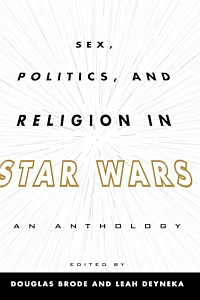Director George Lucas must have sensed something of the future success of his space saga when in 1977, he presented the first episode to the public; wisely, he established a deal with 20th Century Fox, which would grant him full rights to licensing and merchandising.
 Reproductions of his characters could be found on almost any product from coffee mugs, to T-Shirts, shower curtains and cereals, thus having found their place in the consumer culture. As an essential part of the popular culture, the movie and its sequels should have enduring influence on American culture in the five sequels.
Reproductions of his characters could be found on almost any product from coffee mugs, to T-Shirts, shower curtains and cereals, thus having found their place in the consumer culture. As an essential part of the popular culture, the movie and its sequels should have enduring influence on American culture in the five sequels.
Needless to say that products of popular culture, which cause such a turmoil would be researched scholarly sooner or later. Even though there have been many publications dealing with the Star Wars legacy, this volume with 13 essays offers fresh and mostly entertaining content.
The style and approach to topics as diverse as racism, Jewish influences, homosexuality, a feminist analysis of the saga, the meaning of public arenas and the relatedness of the Jedi order to classical secret societies ranges from fan-writing to the academic level.
I particularly enjoyed a text on the strong rootedness of Jedi wisdom in eastern religions; and while reading it, I realized that Grand Master Yoda back in 1980 in the cinema actually seemed very much like some little Buddha to me. Furthermore, the essay on transcendentalism and The Force is very enlightening, too.
Having identified so many origins and hence target groups it is easily understandable why both trilogies were received with such enthusiasm.
The corresponding volume Myth, Media, and Culture in Star Wars: An Anthology (2012) by the same editors will be reviewed here soon.
Review by Dr. A. Ebert © 2013
Douglas Brode and Leah Deyneka (eds.) Sex, Politics, and Religion in Star Wars: An Anthology. Scarecrow Press, 2012, 192 p.
